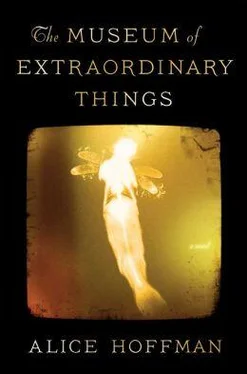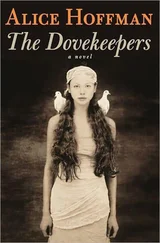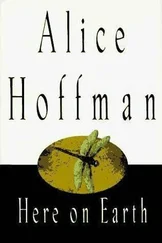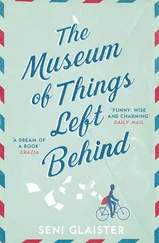“Don’t think this will be a regular occurrence,” the Professor warned when he agreed to cancel the evening. “We need the income more than ever.”
Coralie took the Professor’s hand and kissed it, as if she were a dog willing to do his bidding. But dogs can bite no matter how well trained, and as soon as she went up to her room, Coralie brought out the keepsakes she had nabbed from the workshop desk. She did so every night, gazing at them, imagining how she might arrange a way to get them to those who were dearest to the drowned girl. Now she knew, her feigned illness would be the first step out the door.

The following morning, she said she was too ill to run errands, and was left in bed. It was Sunday, and the Professor had plans to visit one of the racetracks out on Long Island, where he often tried to double his money, or, at least, not lose it all. It was Maureen’s one day off, and most likely she would spend the afternoon with Mr. Morris. Coralie quickly dressed. She peered down from her window to see that the liveryman had returned. This was luck indeed, for he was not merely a workman but also the means of her escape. The weather was warm, and the liveryman’s shirt was off as he jumped down from the driver’s bench to fasten his horse’s lead to the fence post. Coralie could see what Maureen had whispered was indeed true—he had a great many wounds and scars, as well as a series of tattoos inked in deep reds and blues. On his back there was the image of a bird in flight, black wings stretched from one broad shoulder to the other.
He thought there was no one to spy him, and when men are alone they often present their truest selves. He whistled cheerfully as he set to his work, which consisted of bringing forth the carcass of a gigantic striped bass, one so large he could barely wrestle it out of his carriage. Surely it had been some fisherman’s great prize and had cost a good price at market. A flock of birds had settled in the low-growing shrubbery. When they began their chirping, the liveryman took a moment from the work at hand to toss out a bit of his horse’s feed.
“There you go, my dears,” he said as the birds gathered round.
He had once informed Coralie that such birds were common starlings, black when resting in the shadows, but streaked a brilliant purple and blue and green when they wheeled across the sky. Two decades earlier, one hundred of their species had been brought from Europe, then released in Central Park. At first they were a novelty, with their lovely glittering feathers, but as their population grew, with thousands moving across the state and then the country, people came to despise them and consider them pests; there was even a call for starling potpie to be on the menu of every restaurant. The liveryman, however, believed they were equal to the sparrow and the robin, albeit misjudged and unappreciated.
When Coralie opened her window and called, the sound of her voice caught the liveryman by surprise. He turned and let out a soft shout.
Embarrassed when he spied her, he quickly reached for his jacket and pulled it on. “Miss, you shouldn’t sneak up on a person. What if I’d been carrying a weapon and been taken off guard? I don’t like to think what might have happened.”
Coralie took hold of the cowhide bag she’d readied for this occasion. She opened her window wider and, before another word was said, climbed onto the roof, as she’d done so many times before to watch the crowds at Dreamland or to view the sunset. She was steady on her feet as she made her way to the porch overhang.
“Get back,” the liveryman called, unnerved. He’d returned to work only grudgingly, for he despised his employer now.
Rather than listen, Coralie continued on toward the roof’s edge, and there she grasped a branch of the pear tree. She shimmied down, and as she did the branches shook, driving the starlings into the sky.
“You should have listened to me when I said the river wasn’t for swimming that night,” the liveryman chided. “Will you at least listen to me now and stay where you belong?”
Coralie did no such thing but instead came to view the awesome form of the fish on the grass. “What’s the use of this?”
A bass so large was frightening to see once it had been taken from its element. Yet this fish possessed an unearthly beauty. In the spray of sunlight that filtered through the leaves, the fish’s scales shone a dazzling silver.
“This is nothing. Only a dead fish that stinks like any other.” The liveryman took out a handkerchief to wipe his forehead.
“It appears to be something.” Coralie had seen the Professor’s tools, and the monsters he’d invented out of pieces. A chill went through her. “It seems my father wishes to create a sea creature that is half woman and half fish.”
She waited in the garden while the liveryman dragged the fish down to the cellar, to be left outside the locked door. He’d brought along several bushels of ice, so the fish would stay cool in the dank corridor. He was merely following instructions, for the Professor had already sent out telegrams to the newspapers in which he promised to solve the Hudson Mystery. If he did not present a real mermaid on the last weekend in May, he would allow customers free access to his museum for the entire month of June, a bargain he never intended to honor, for such an arrangement would surely bankrupt him.
“You need to mind your business,” the liveryman advised Coralie when he found she was still waiting for him. She had a defiant expression he recognized. Clearly she intended to do as she pleased.
“You need to take me where I want to go. To the man we have in common.”
“Are you speaking of the Professor?” The liveryman tried a joke. “He’s common enough.”
“You know who I speak of. He told me you were the one who brought him here. That’s a fact my father wouldn’t care for, should he ever know your part in the photographer’s finding his way to us.”
Leaving the liveryman to think this over, Coralie retrieved Eddie’s camera and plates, which she brought to the carriage.
“Fine, I’ll take those to him,” the liveryman allowed.
“No.” Coralie stepped onto the carriage stair and drew herself up to the driver’s seat. She sat calmly, with her hands folded. “I will.”
The liveryman now entered into a frantic state. “Let’s be reasonable. I’ve got the fish to deal with. As for you, this business will lead to ruin,” he warned. “If I had a daughter, the last thing I’d want would be for her to know about the meanness in the world.”
“If you had a daughter, you would likely want her to know what the world was like so that she might be able to live in it with open eyes.”
The liveryman considered the girl’s words. He had done terrible things in his life, most of which he strongly regretted. In Coralie’s face, however, he saw an absolute faith in him. It was nothing he deserved, but it was most likely the reason he untied his horse, then climbed up beside his passenger.
“If I valued my life, I wouldn’t consider this. You’re lucky I don’t believe myself worth saving.”
Coralie could feel her heart pounding as the horse began to trot. Her plan had become a living thing, not air and thought, but flesh and blood. All at once she was in the center of her life, not hiding behind a curtain or eavesdropping with her ear pressed against a floorboard or a door. She ducked her head as they passed beneath the branches of the pear tree. The whole world smelled so fresh and new she gasped when inhaling the green-tinged scent. Sunlight filtered directly into her face, so that she had to blink in the light. Still she saw everything quite clearly as they headed along the road: the crush of afternoon shoppers, the streetcar barreling toward Coney Island Avenue, the shadow of the liveryman as he whistled at his horse, urging the old steed to quicken its pace, driving them out of Kings County with no idea that he’d already been saved.
Читать дальше













